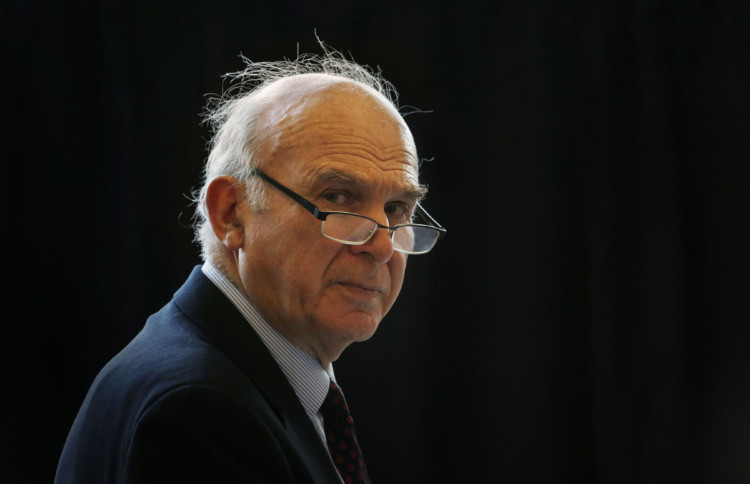
Workers earning the minimum wage are to get an increase in their hourly rate, Business Secretary Vince Cable has revealed.
The Lib Dem minister ordered an independent review of the National Minimum Wage amid fears those in low paid jobs are being swamped by the soaring cost of living. And now, in an interview with The Sunday Post, Mr Cable confirmed for the first time the rise will definitely happen but “how radical” the increase will be has still to be decided.
Mr Cable tasked the Low Pay Commission with investigating restoring the minimum wage’s value, which is estimated to have fallen in real terms by 10% to 12% since the 2008 financial crisis.
The Business Secretary said: “There will be an increase. The question is how radical that increase is. I’ve made it very clear we should be moving towards a more generous minimum wage.
“I don’t want to set specific numbers. The Low Pay Commission have to look at the evidence and make a recommendation to me. I’ve said we do want to move out of this period of austerity and squeeze on real wages but as to how we do it and at what speed, I’m waiting for their advice.”
It is estimated that 1.9 million people (7.6% of all workers) earned within 25p of the minimum wage in 2012, twice the proportion in 2002. The Low Pay Commission will hand its report, including a review on ways to increase the rate to pre-2008 levels, to ministers next month.
The UK Government has the power to overrule the Commission but it has been reported Chancellor George Osborne is keen on a significant jump in the minimum wage, currently £6.31 an hour for adults and £5.08 for 18 to 21-year-olds, in the run-up to next year’s General Election.
Dave Watson, of UNSION, Britain’s biggest trade union, said: “Britain needs a pay rise. Workers have experienced the longest real wage pay squeeze since 1870. Inflation has risen faster than wages for almost 43 months.
“Opinion polls show strong support for a rise in the minimum wage, even among Tory voters. It’s also important for the local economy. Low paid workers in particular spend more of their earnings in local businesses.
“If George Osborne was really interested in cutting the deficit, he might recognise it’s the taxpayer that is subsidising bad employers through the welfare system.”
Mr Cable was speaking to The Sunday Post during a visit to Glasgow where he toured defence manufacturer Thales Optronics. Asked about the independence referendum, he said criticism of the pro-Union campaign was too negative was “unfair” but admitted it was a “challenge” to tease out some of the positive arguments for the Union because he claimed they had been taken for granted for hundreds of years.
He explained: “A lot of the stronger arguments for the No campaign are about the negative consequences or the uncertainties of a break-up so you can’t avoid a certain degree of negativity.
“There are some very powerful negative arguments and they have to be made but we have to temper that in terms of tone and we have to make a real effort to put this in positive terms.
“When something has happened for 300 years, it’s something one takes for granted as a good thing but we are challenged for the first time to set out the argument and it is a challenge.”
Mr Cable has been at the centre of clashes with his Tory coalition colleagues on the issue of immigration in recent weeks as restrictions on Romanian and Bulgarian migrants coming to the UK were relaxed.
The Lib Dem minister said he “didn’t see why it was necessary to create a drama out of this issue”.
He continued: “Instead of worrying about whatever it is, 10,000 or 20,000 people from Bulgaria, there are hundreds of thousands of people who are here illegally at the moment and what we need is a system that identifies illegal immigration.
“At the moment we don’t have one because we don’t count people who are leaving the country and act much more quickly on the issue of overstaying. We’ve got to make the case to the public that we’re managing it properly and there are types of immigration that are good for Britain.”

Enjoy the convenience of having The Sunday Post delivered as a digital ePaper straight to your smartphone, tablet or computer.
Subscribe for only £5.49 a month and enjoy all the benefits of the printed paper as a digital replica.
Subscribe